
Chris Long
@chrismlong.bsky.social
VP Of Marketing - I improve rankings through a deep understanding of Google's algorithm and Web technology. MozCon, SMX, BrightonSEO speaker
As part of the statement, Chegg mentioned that their non-subscriber traffic is down -49% in January 2025.
This is compared to a -8% decline in Q2 2024 (this is quarter that Google launched AI Overviews).
This is compared to a -8% decline in Q2 2024 (this is quarter that Google launched AI Overviews).
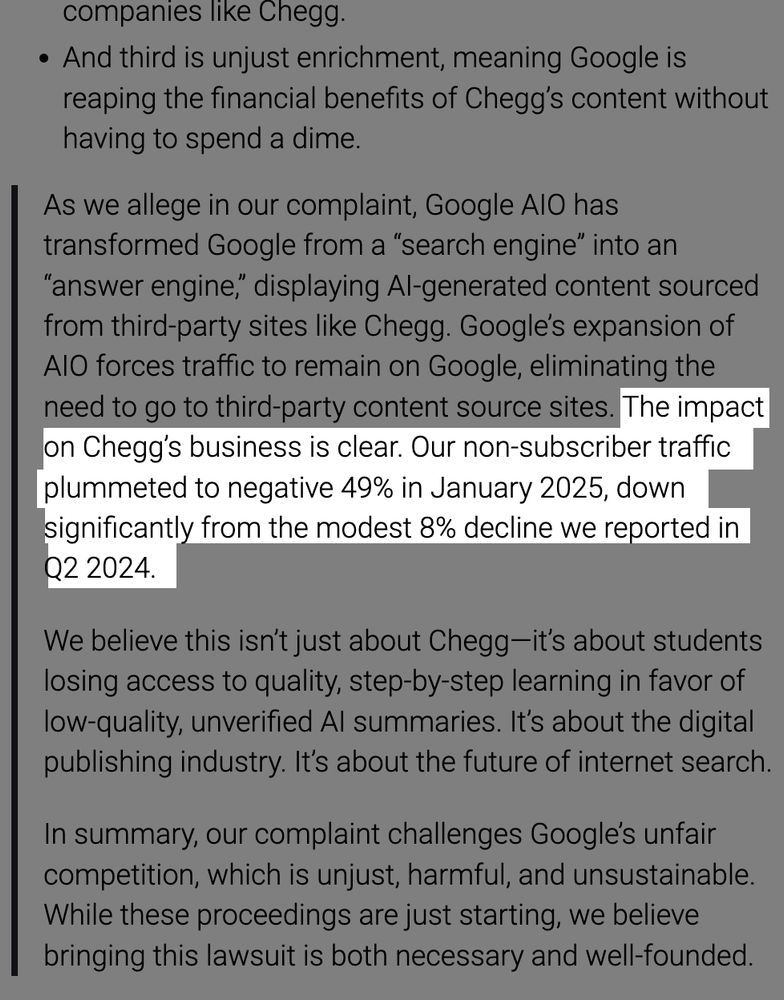
February 25, 2025 at 1:13 PM
As part of the statement, Chegg mentioned that their non-subscriber traffic is down -49% in January 2025.
This is compared to a -8% decline in Q2 2024 (this is quarter that Google launched AI Overviews).
This is compared to a -8% decline in Q2 2024 (this is quarter that Google launched AI Overviews).
In Chegg's official statement, they provide three arguments:
1. Reciprocal Dealing
2. Monopoly Maintenance:
3. Unjust Enrichment
1. Reciprocal Dealing
2. Monopoly Maintenance:
3. Unjust Enrichment
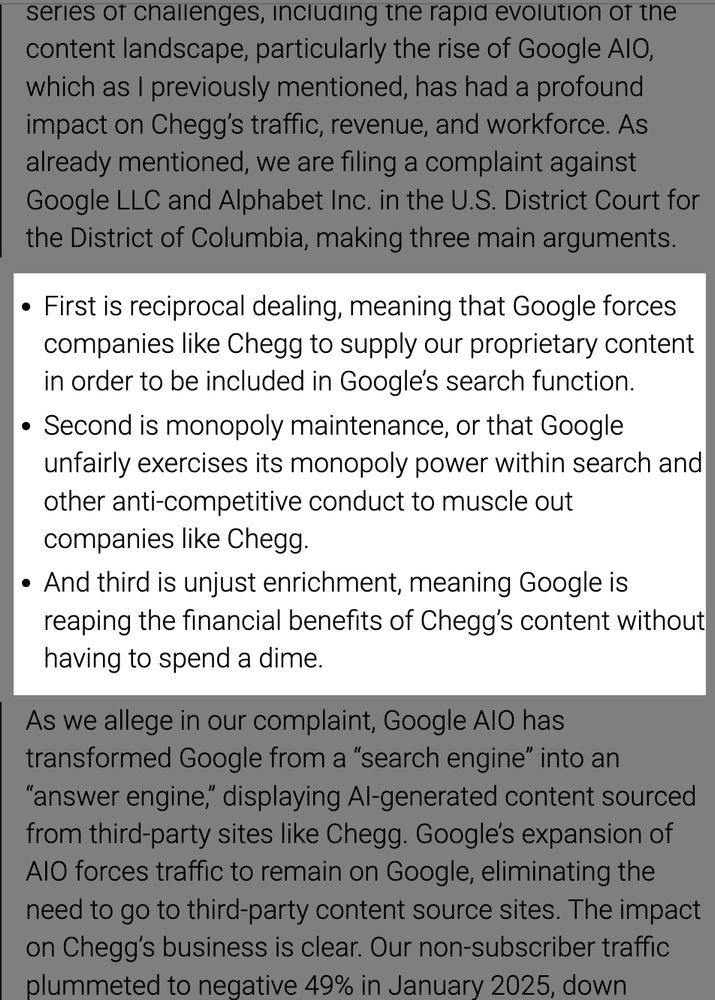
February 25, 2025 at 1:13 PM
In Chegg's official statement, they provide three arguments:
1. Reciprocal Dealing
2. Monopoly Maintenance:
3. Unjust Enrichment
1. Reciprocal Dealing
2. Monopoly Maintenance:
3. Unjust Enrichment
Big SEO News: Chegg is suing Google over AI Overviews.
They claim that AIOs have had a "profound impact on Chegg’s traffic, revenue, and workforce":
They claim that AIOs have had a "profound impact on Chegg’s traffic, revenue, and workforce":

February 25, 2025 at 1:11 PM
Big SEO News: Chegg is suing Google over AI Overviews.
They claim that AIOs have had a "profound impact on Chegg’s traffic, revenue, and workforce":
They claim that AIOs have had a "profound impact on Chegg’s traffic, revenue, and workforce":
5. In a very interesting snippet, he talks about using the "@graph" property of structured data when connecting multiple entities on the same page.
You define the "@graph" property at the top of the structured data, then define each subproperty's "type" and connect them by using "@id".
You define the "@graph" property at the top of the structured data, then define each subproperty's "type" and connect them by using "@id".
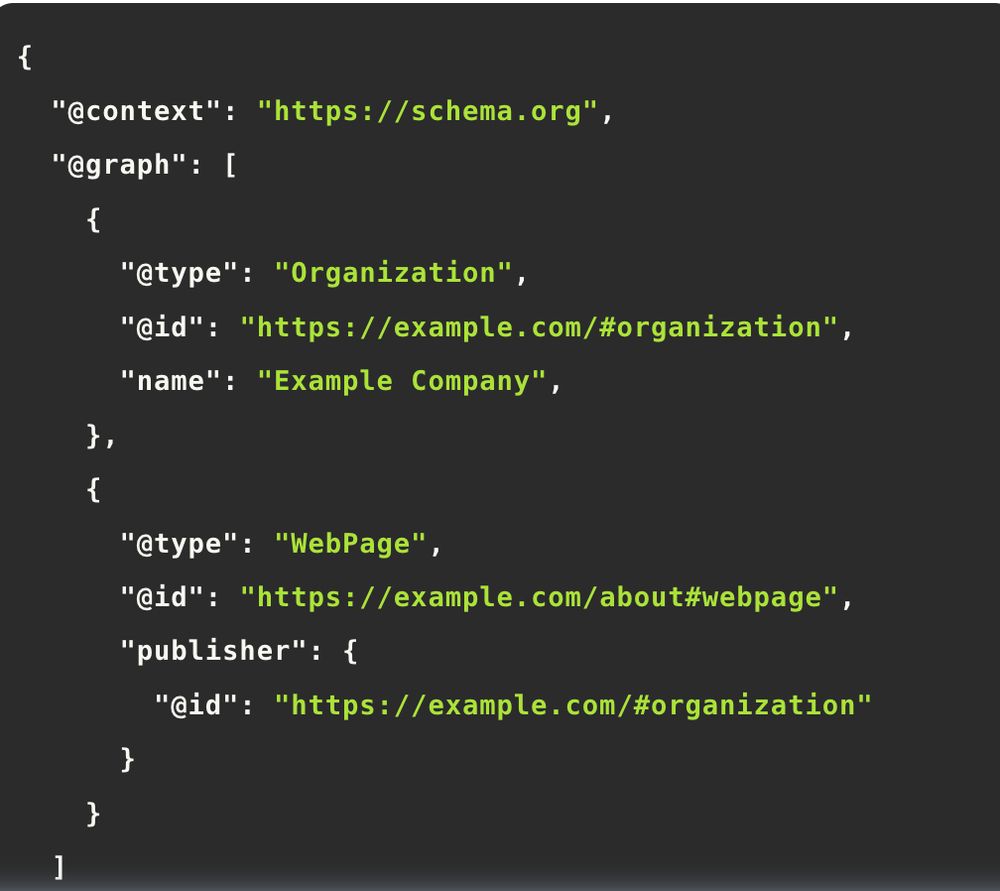
February 12, 2025 at 2:06 PM
5. In a very interesting snippet, he talks about using the "@graph" property of structured data when connecting multiple entities on the same page.
You define the "@graph" property at the top of the structured data, then define each subproperty's "type" and connect them by using "@id".
You define the "@graph" property at the top of the structured data, then define each subproperty's "type" and connect them by using "@id".
4. Tyler also recommends paring "@id" properties with "sameAs" schema. The "sameAs" schema can be used to reference external profiles (author pages, social profiles, Wikipedia).
This helps pair your internal ID function with external references that Google can easily connect.
This helps pair your internal ID function with external references that Google can easily connect.
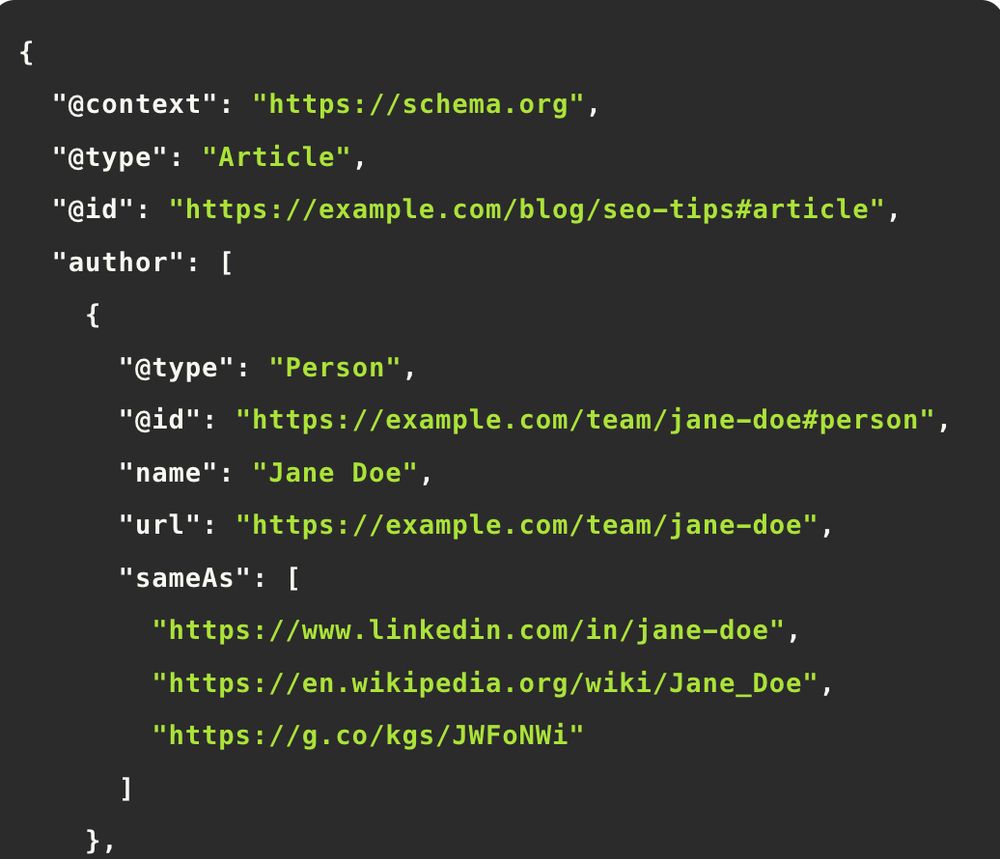
February 12, 2025 at 2:06 PM
4. Tyler also recommends paring "@id" properties with "sameAs" schema. The "sameAs" schema can be used to reference external profiles (author pages, social profiles, Wikipedia).
This helps pair your internal ID function with external references that Google can easily connect.
This helps pair your internal ID function with external references that Google can easily connect.
3. Tyler recommends that to reference entities cross-pages, it's best to pair an "@id" property with a URL. This allows for a more explicit connection between the two properties.
The URL would be formatted as a URL, while the ID would be formatted as as fragment.
The URL would be formatted as a URL, while the ID would be formatted as as fragment.
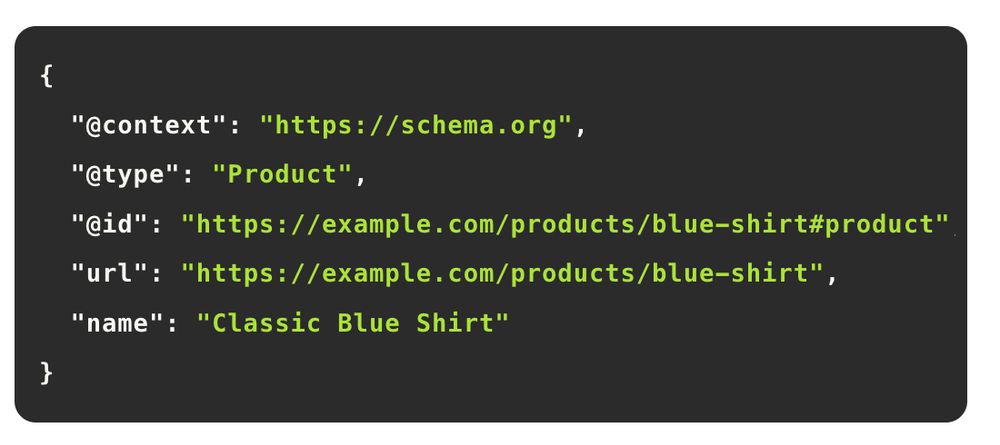
February 12, 2025 at 2:06 PM
3. Tyler recommends that to reference entities cross-pages, it's best to pair an "@id" property with a URL. This allows for a more explicit connection between the two properties.
The URL would be formatted as a URL, while the ID would be formatted as as fragment.
The URL would be formatted as a URL, while the ID would be formatted as as fragment.
2. The "@id" property acts as a "variable" that you define in one place and reference in other aspects of your site. For example, you could link your website to an "Organization" ID property.
In another markup, you reference that "Organization" variable when defining the Publisher of an article.
In another markup, you reference that "Organization" variable when defining the Publisher of an article.
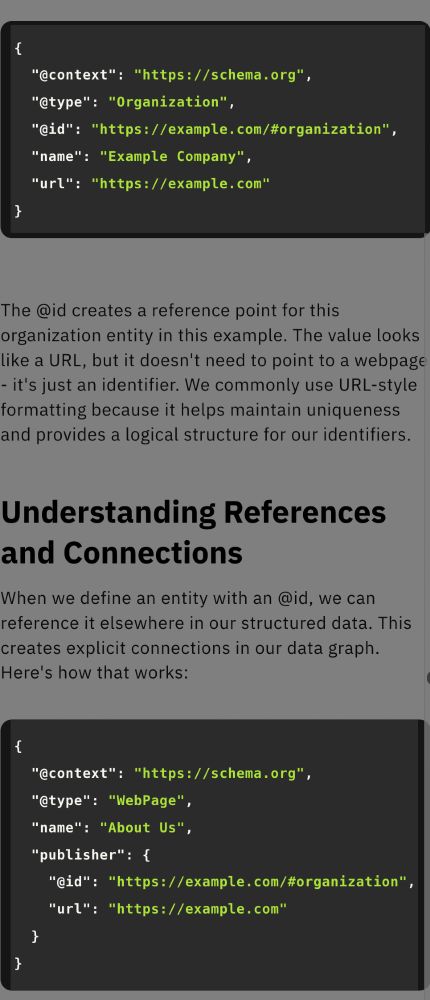
February 12, 2025 at 2:05 PM
2. The "@id" property acts as a "variable" that you define in one place and reference in other aspects of your site. For example, you could link your website to an "Organization" ID property.
In another markup, you reference that "Organization" variable when defining the Publisher of an article.
In another markup, you reference that "Organization" variable when defining the Publisher of an article.
1. The "@id" property can be used to uniquely identify nodes in your site's data graph.
It is actually an INTERNAL reference system for your site, generally using URL or URL fragments.
It is actually an INTERNAL reference system for your site, generally using URL or URL fragments.
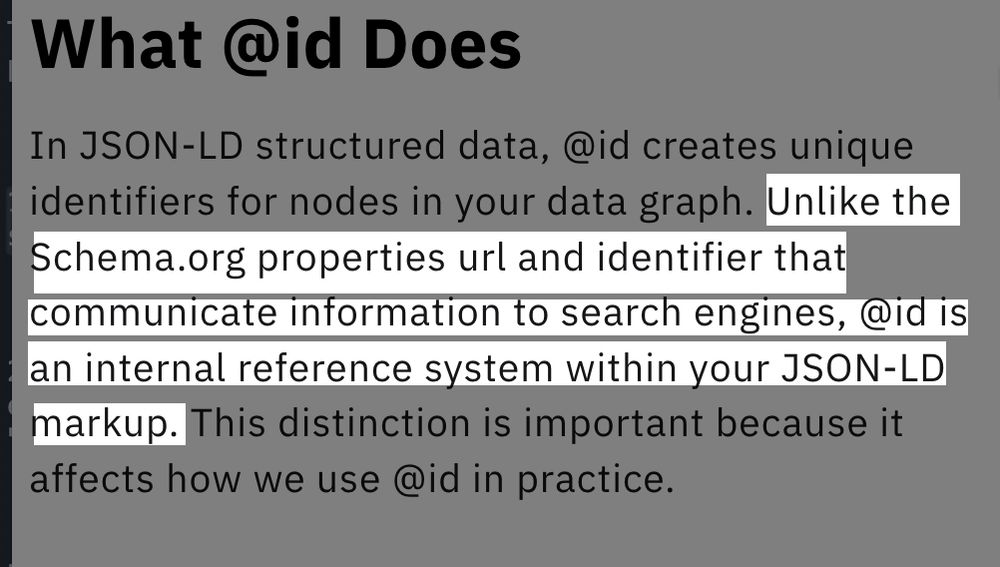
February 12, 2025 at 2:05 PM
1. The "@id" property can be used to uniquely identify nodes in your site's data graph.
It is actually an INTERNAL reference system for your site, generally using URL or URL fragments.
It is actually an INTERNAL reference system for your site, generally using URL or URL fragments.
Advanced Schema SEO: This article showcases how to use "@id" schema to create powerful connections between your site's entities:
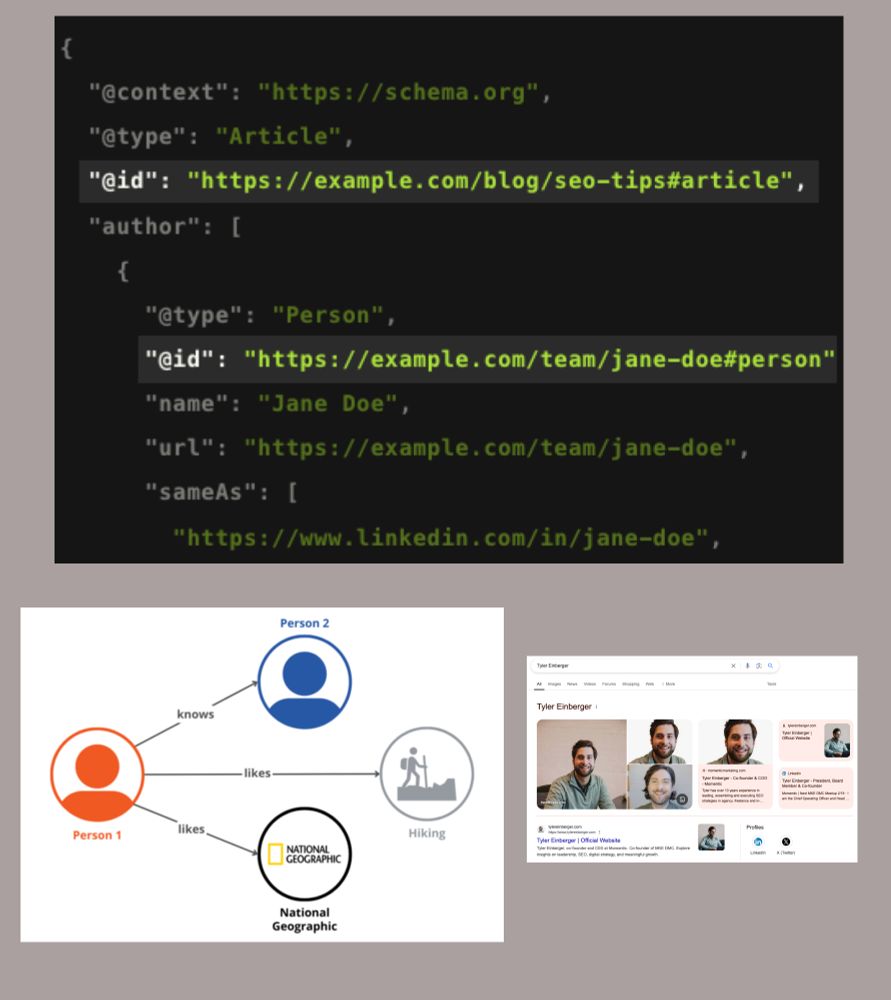
February 12, 2025 at 2:03 PM
Advanced Schema SEO: This article showcases how to use "@id" schema to create powerful connections between your site's entities:
You'll then want to verify the indexation. Perform some "site:" searches for the content to see if Google actually records the content in it's index.
Or utilize the Rich Results Tool to ensure Google can render the whole page.
Or utilize the Rich Results Tool to ensure Google can render the whole page.
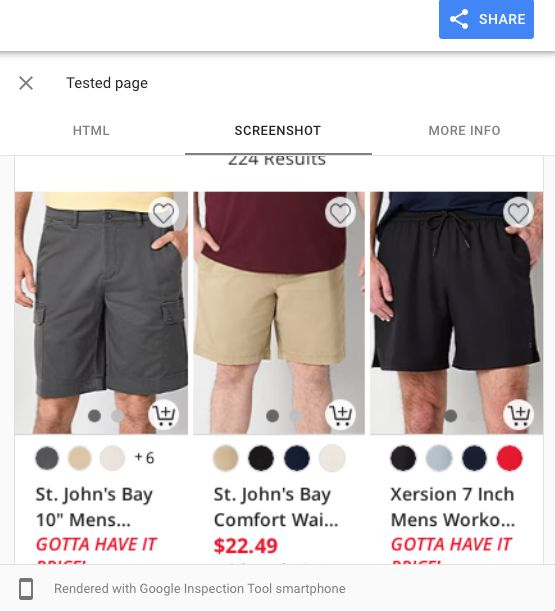
February 7, 2025 at 1:29 PM
You'll then want to verify the indexation. Perform some "site:" searches for the content to see if Google actually records the content in it's index.
Or utilize the Rich Results Tool to ensure Google can render the whole page.
Or utilize the Rich Results Tool to ensure Google can render the whole page.
During my time in SEO, I've found that retail sites are the biggest culprits of using JavaScript to load content.
There are just so many technologies that use it nowadays to insert content. Review platforms, headless CMS, personalization software and more.
There are just so many technologies that use it nowadays to insert content. Review platforms, headless CMS, personalization software and more.
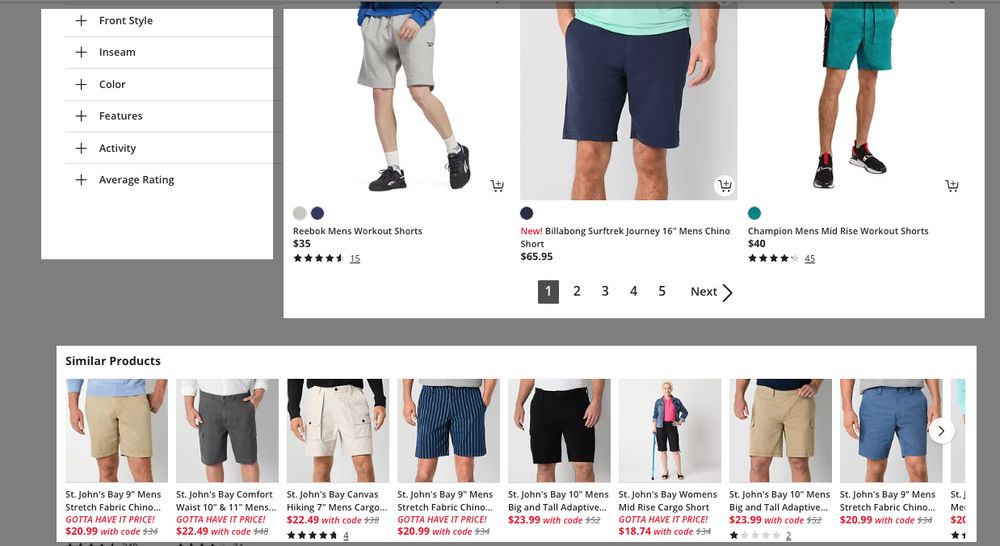
February 7, 2025 at 1:27 PM
During my time in SEO, I've found that retail sites are the biggest culprits of using JavaScript to load content.
There are just so many technologies that use it nowadays to insert content. Review platforms, headless CMS, personalization software and more.
There are just so many technologies that use it nowadays to insert content. Review platforms, headless CMS, personalization software and more.
Ecommerce SEO Tip: Always analyze your product and category pages with JavaScript turned off.
You'll easily spot content that's JS-dependent:
You'll easily spot content that's JS-dependent:

February 7, 2025 at 1:27 PM
Ecommerce SEO Tip: Always analyze your product and category pages with JavaScript turned off.
You'll easily spot content that's JS-dependent:
You'll easily spot content that's JS-dependent:
7. Finally, they analyzed the site's that are most likely to get traffic from ChatGPT Search.
They found that Online Services, Education and Mass Media were the biggest industries. Entertain, travel and real estate were at the bottom of the list.
They found that Online Services, Education and Mass Media were the biggest industries. Entertain, travel and real estate were at the bottom of the list.
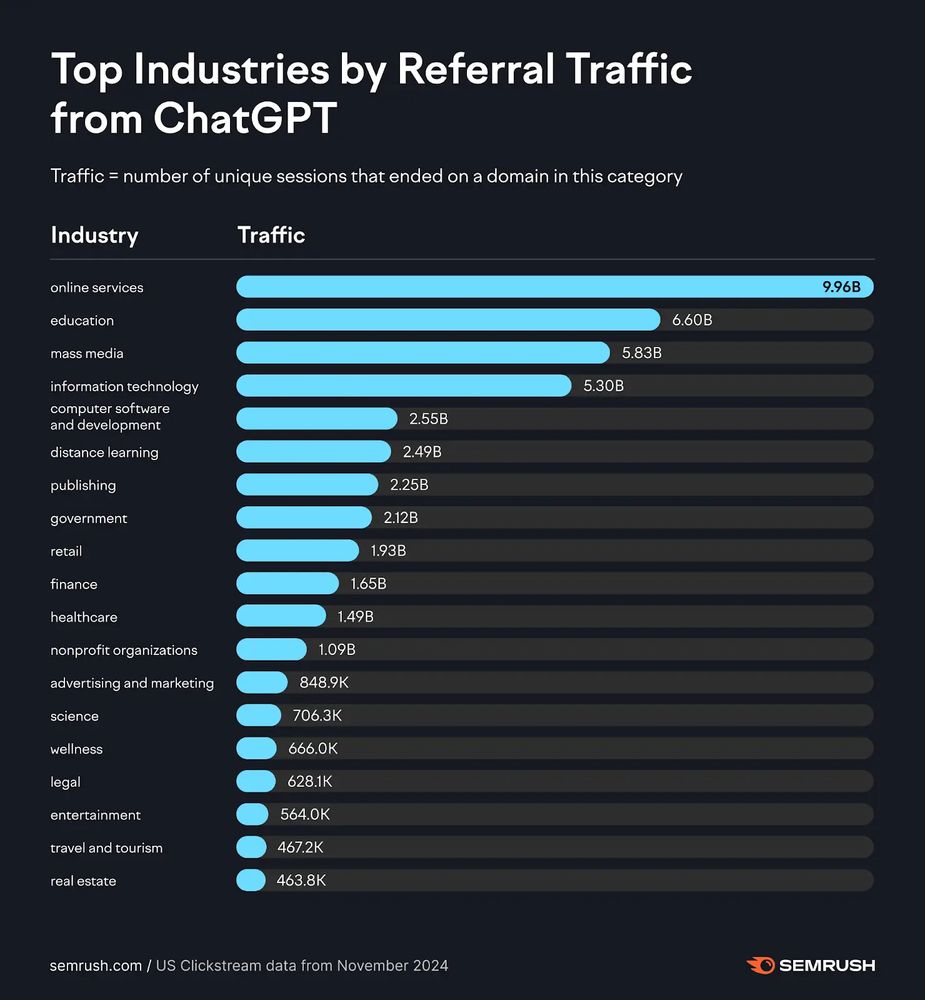
February 6, 2025 at 2:02 PM
7. Finally, they analyzed the site's that are most likely to get traffic from ChatGPT Search.
They found that Online Services, Education and Mass Media were the biggest industries. Entertain, travel and real estate were at the bottom of the list.
They found that Online Services, Education and Mass Media were the biggest industries. Entertain, travel and real estate were at the bottom of the list.
6. They also analyzed websites that were more likely to get traffic from ChatGPT than Google. They found that a lot of AI-related sites (AIPRM, RANKIQ were cited) are more likely to get traffic.
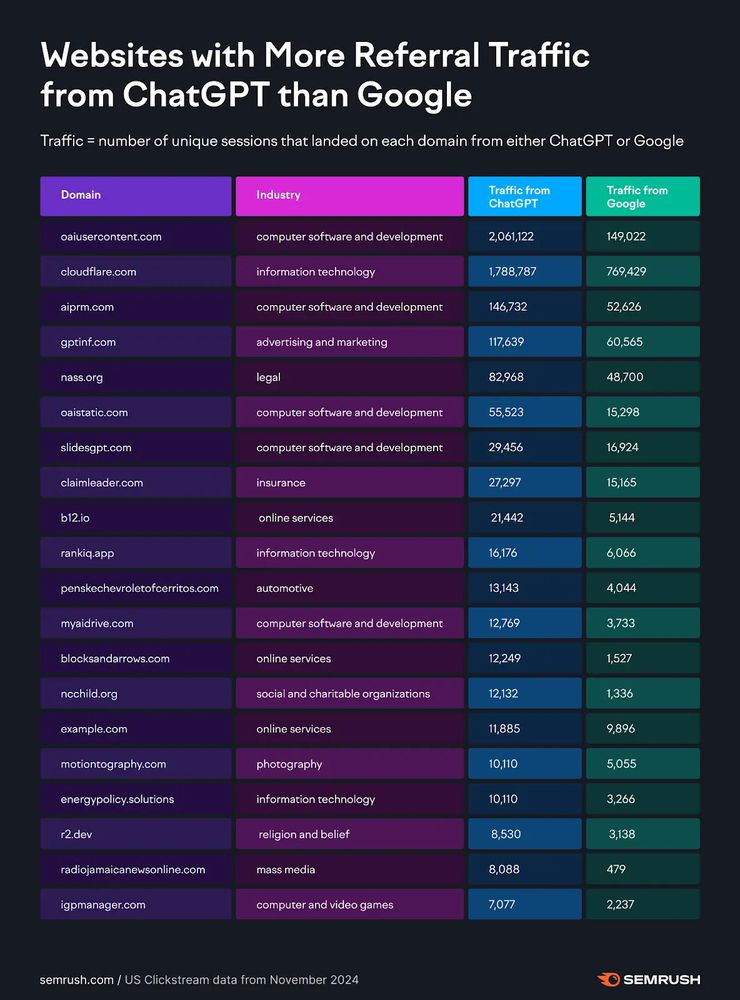
February 6, 2025 at 2:02 PM
6. They also analyzed websites that were more likely to get traffic from ChatGPT than Google. They found that a lot of AI-related sites (AIPRM, RANKIQ were cited) are more likely to get traffic.
4. They also compared the intents of ChatGPT interactions against Google searches. They found that 52.2% of ChatGPT prompts had "Informational" intent when compared to Google's 36.4%.
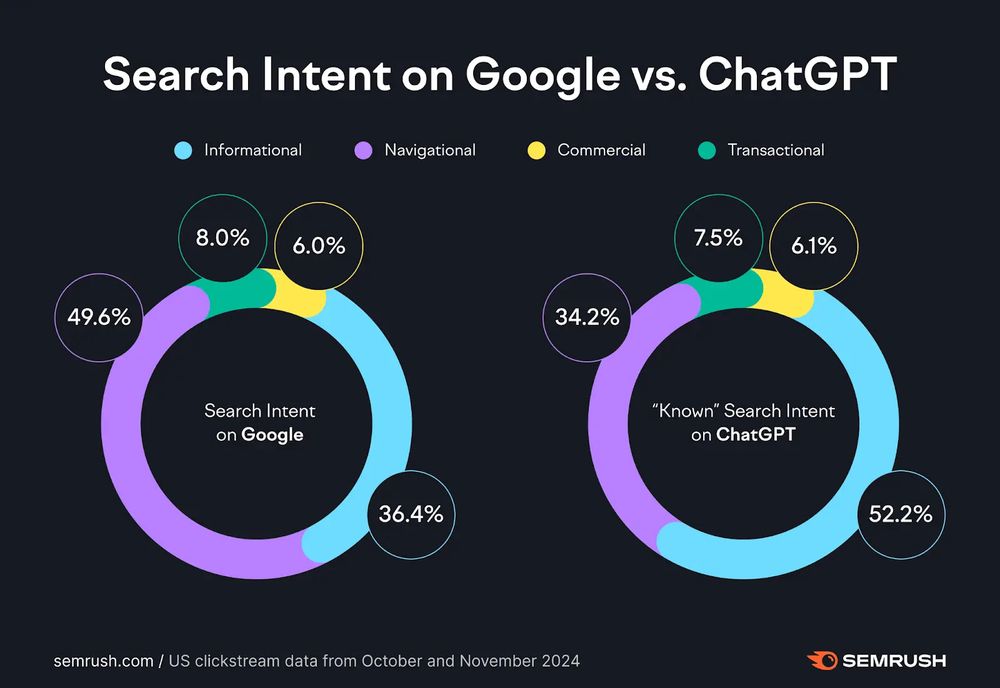
February 6, 2025 at 2:01 PM
4. They also compared the intents of ChatGPT interactions against Google searches. They found that 52.2% of ChatGPT prompts had "Informational" intent when compared to Google's 36.4%.
3. When using ChatGPT Search, prompts tend to much shorter. They averaged only 4.2 words, compared to 23 words with Search turned off.
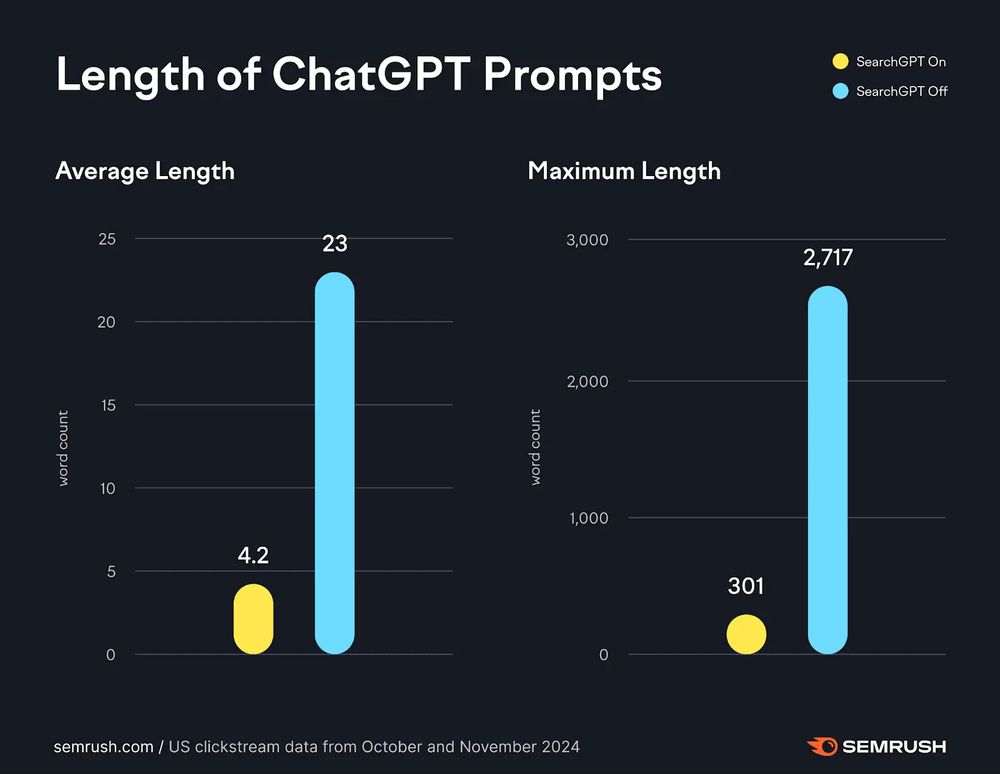
February 6, 2025 at 2:01 PM
3. When using ChatGPT Search, prompts tend to much shorter. They averaged only 4.2 words, compared to 23 words with Search turned off.
2. They also looked whether users had the "Search" feature turned on our off.
They found that 46% of people use ChatGPT with Search turned on. This is a lot more people than I would have thought.
They found that 46% of people use ChatGPT with Search turned on. This is a lot more people than I would have thought.
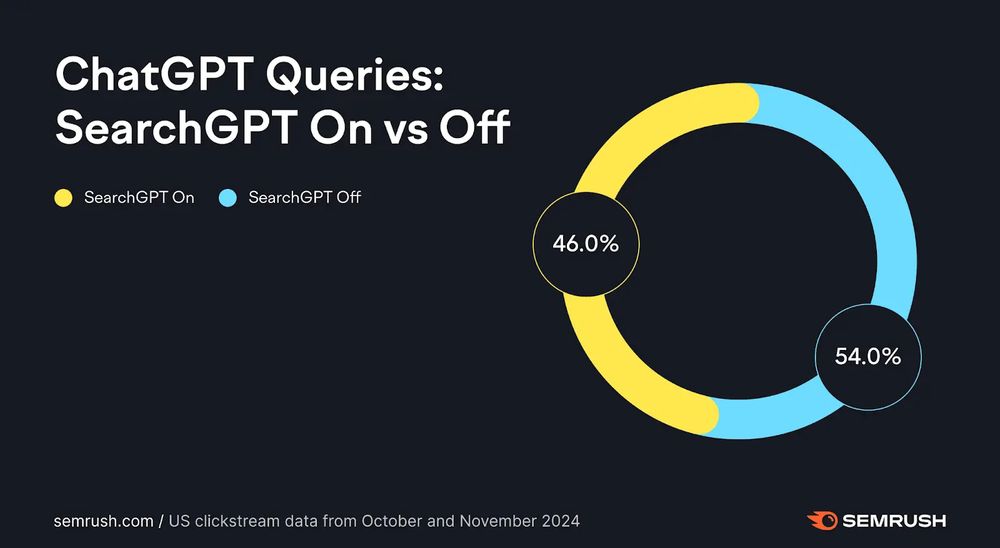
February 6, 2025 at 2:01 PM
2. They also looked whether users had the "Search" feature turned on our off.
They found that 46% of people use ChatGPT with Search turned on. This is a lot more people than I would have thought.
They found that 46% of people use ChatGPT with Search turned on. This is a lot more people than I would have thought.
1. ChatGPT is rapidly expanding as a search referrer. In July 2024, Semrush found that ChatGPT sent traffic to less than 10,000 domains in a day. In November 2024, that increased to 30,000+ domains.
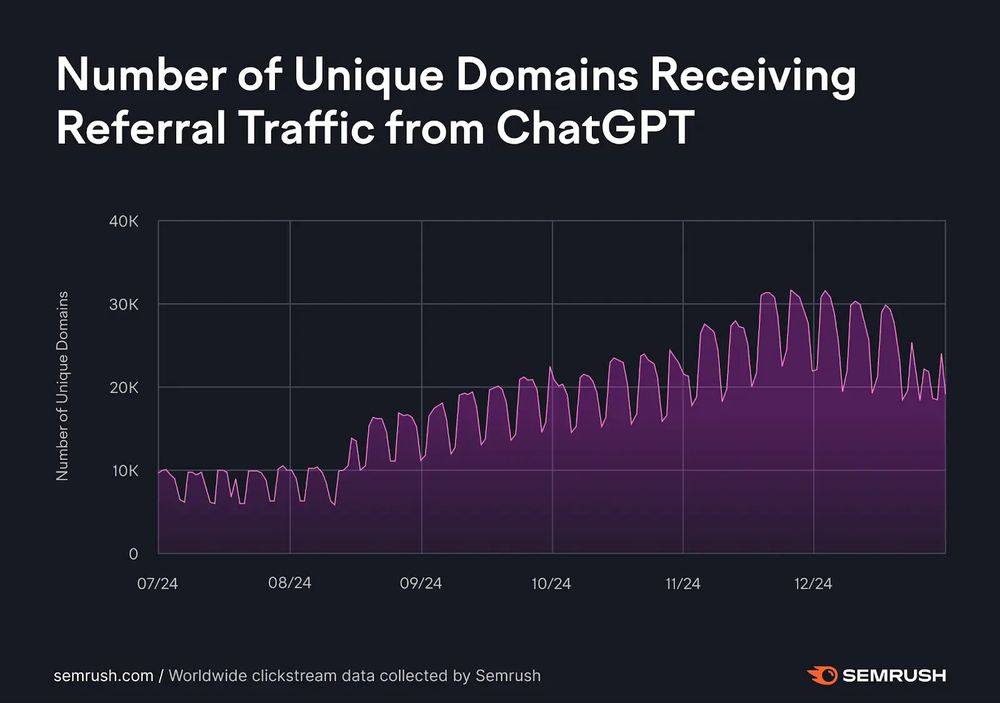
February 6, 2025 at 2:00 PM
1. ChatGPT is rapidly expanding as a search referrer. In July 2024, Semrush found that ChatGPT sent traffic to less than 10,000 domains in a day. In November 2024, that increased to 30,000+ domains.
SEO Data Study: By analyzing 80M+ clickstream records, Semrush found NEARLY HALF of users use ChatGPT like a search engine + more insights:

February 6, 2025 at 2:00 PM
SEO Data Study: By analyzing 80M+ clickstream records, Semrush found NEARLY HALF of users use ChatGPT like a search engine + more insights:
Whoa, OpenAI launched "Deep Research" an AI-agent capable of conducting complex online research.
This could automate a TON of SEO research:
This could automate a TON of SEO research:
February 3, 2025 at 1:48 PM
Whoa, OpenAI launched "Deep Research" an AI-agent capable of conducting complex online research.
This could automate a TON of SEO research:
This could automate a TON of SEO research:
7. I was also a bit surprised to see that keywords in the URL had such as negligible correlation (0.034) to rankings.
While it's not a huge factor, I thought it would be a bit stronger.
While it's not a huge factor, I thought it would be a bit stronger.

January 31, 2025 at 2:00 PM
7. I was also a bit surprised to see that keywords in the URL had such as negligible correlation (0.034) to rankings.
While it's not a huge factor, I thought it would be a bit stronger.
While it's not a huge factor, I thought it would be a bit stronger.
6. Surprisingly, links with Commercial intent had the lowest correlation for both referring domains and backlinks with approximately 0.20 for each.
This might be because commercial queries are generally lower in volume compared to informational.
This might be because commercial queries are generally lower in volume compared to informational.

January 31, 2025 at 2:00 PM
6. Surprisingly, links with Commercial intent had the lowest correlation for both referring domains and backlinks with approximately 0.20 for each.
This might be because commercial queries are generally lower in volume compared to informational.
This might be because commercial queries are generally lower in volume compared to informational.
5. The study also broke down the correlation by search intent.
The data found that for Informational searches, referring domains (0.278) and backlinks (0.269) were most correlated.
The data found that for Informational searches, referring domains (0.278) and backlinks (0.269) were most correlated.

January 31, 2025 at 2:00 PM
5. The study also broke down the correlation by search intent.
The data found that for Informational searches, referring domains (0.278) and backlinks (0.269) were most correlated.
The data found that for Informational searches, referring domains (0.278) and backlinks (0.269) were most correlated.
4. Interestingly, link mattered for local queries a lot.
Both referring domains and backlinks had relatively high correlations of 0.33 for local rankings.
Both referring domains and backlinks had relatively high correlations of 0.33 for local rankings.

January 31, 2025 at 2:00 PM
4. Interestingly, link mattered for local queries a lot.
Both referring domains and backlinks had relatively high correlations of 0.33 for local rankings.
Both referring domains and backlinks had relatively high correlations of 0.33 for local rankings.
3. Overall, links correlated with rankings slightly less than the last study.
In their last study in 2019, links had a 0.27 correlation with rankings. In this study it was between 0.22–0.24.
In their last study in 2019, links had a 0.27 correlation with rankings. In this study it was between 0.22–0.24.

January 31, 2025 at 2:00 PM
3. Overall, links correlated with rankings slightly less than the last study.
In their last study in 2019, links had a 0.27 correlation with rankings. In this study it was between 0.22–0.24.
In their last study in 2019, links had a 0.27 correlation with rankings. In this study it was between 0.22–0.24.

